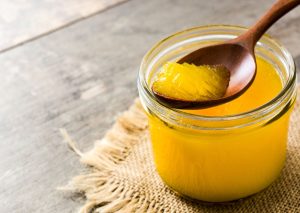 On February 7, 2024, in the case of Sterling Agro Industries Limited vs M/S ASR Trading Company & Ors. CS(COMM) 148/2019, I.A. 4158/2019, the Delhi High Court granted a permanent injunction order in favour of Sterling Agro Industries Limited, restraining ASR Trading Company & Ors. using the mark NOVYA to sell ‘Ghee and other dairy products’ with packaging similar to that of Sterling Agro Industries Limited’s NOVA trademark.
On February 7, 2024, in the case of Sterling Agro Industries Limited vs M/S ASR Trading Company & Ors. CS(COMM) 148/2019, I.A. 4158/2019, the Delhi High Court granted a permanent injunction order in favour of Sterling Agro Industries Limited, restraining ASR Trading Company & Ors. using the mark NOVYA to sell ‘Ghee and other dairy products’ with packaging similar to that of Sterling Agro Industries Limited’s NOVA trademark.
As far as the factual matrix goes, the plaintiff, renowned for its premium dairy offerings bearing the distinctive trademark ‘NOVA’, has been a prominent figure in the industry since 1991. With numerous trademark registrations secured, the plaintiff has firmly established its brand in the market and adopted the trademark ‘NOVA’ in 1992 in relation to Ghee and other dairy products. However, in 2019, the plaintiff discovered that the defendants, a partnership firm, were marketing products under the strikingly phonetic similar name ‘NOVYA’, along with packaging resembling their own featuring a blue background, a grazing cow, and the brand name, which shows that the defendant with same colour scheme and layout of all elements to make the pack as close as possible to the product of the plaintiff, presence of green strip with a curve on one corner shows mala fide intent of the defendant. Consequently, the plaintiff initiated legal proceedings, alleging infringement and passing off, and sought a permanent injunction against the defendants.
The plaintiff demonstrated significant goodwill and recognition under the ‘NOVA’ trademark through years of continuous use and extensive advertising. The plaintiff’s evidence of increasing sales figures and promotional activities supported their claims. The plaintiff alleged that the defendant’s use of the mark ‘NOVYA’ amounted to passing off and infringement, given its close resemblance to the plaintiff’s trademark and packaging. The defendants contested the plaintiff’s claims, contending that there were notable distinctions between the marks ‘NOVA’ and ‘NOVYA.’ They argued that their trademark application for ‘NOVYA’ covered various goods beyond those specified by the plaintiff’s trademark. The defendants denied deliberate imitation or infringement, claiming they had not engaged in commercial activities under the ‘NOVYA’ mark.
During the proceedings, the Court observed and penalised the defendants for falsely advertising their product as having a ‘Government of India registered trademark’ despite their trademark application being abandoned due to opposition by the plaintiff. The court observed that the defendants’ inconsistent representation and sporadic appearance in court indicated a disregard for legal obligations. Further, the court rejected the defendants’ defence of dissimilarity between the marks, finding a clear case of infringement and passing off due to visual and phonetic similarities, aiming to benefit from the plaintiff’s goodwill.
The Court remarked, “The argument posited by the defendants, asserting a distinction between ‘NOVA’ and ‘NOVYA’, does not hold up under judicial scrutiny. Their defence, predicated on the claim of dissimilarity between the marks, is fundamentally flawed. Visually and structurally, the two trademarks exhibit a level of similarity that far surpasses incidental resemblance, reflecting a near-identical composition in appearance and phonetic sound. Such striking parallels not only starkly counter the defendants’ claims of differentiation but also compellingly point towards a clear case of infringement. This congruence, in both visual form and phonetics, unequivocally undermines the defendants’ defence and proves infringement claim.”
The Court determined that the infringement was made blatantly clear by the defendants’ choice to use ‘NOVYA’ for identical goods, particularly milk items like Ghee, directly competing within the same class 29 where the plaintiff holds a registration. This direct overlap in product categories highlights the lack of merit in the defendants’ claim of distinctiveness between the marks. Moreover, the imitation extends to the packaging used by the defendants, which not only replicates the plaintiff’s trade dress but also signifies a deliberate tactic to deceive consumers and capitalise on the plaintiff’s established market presence. These actions undeniably indicate the defendants’ intention to imitate and benefit from the recognition and trust the plaintiff has built over years of continuous use of their mark NOVA.
Consequently, the defendants’ claim of trademark distinctiveness is flat, revealing deliberate attempts to infringe upon and exploit the plaintiff’s trademark rights. The court ruled in favour of the plaintiff, issuing a permanent injunction against the defendants and awarding litigation costs. Furthermore, Defendant No. 3 was held guilty of contempt and ordered to pay a penalty to the plaintiff.
Authors: Manisha Singh and Lisha Chauhan
First Published by: IP LINK here



